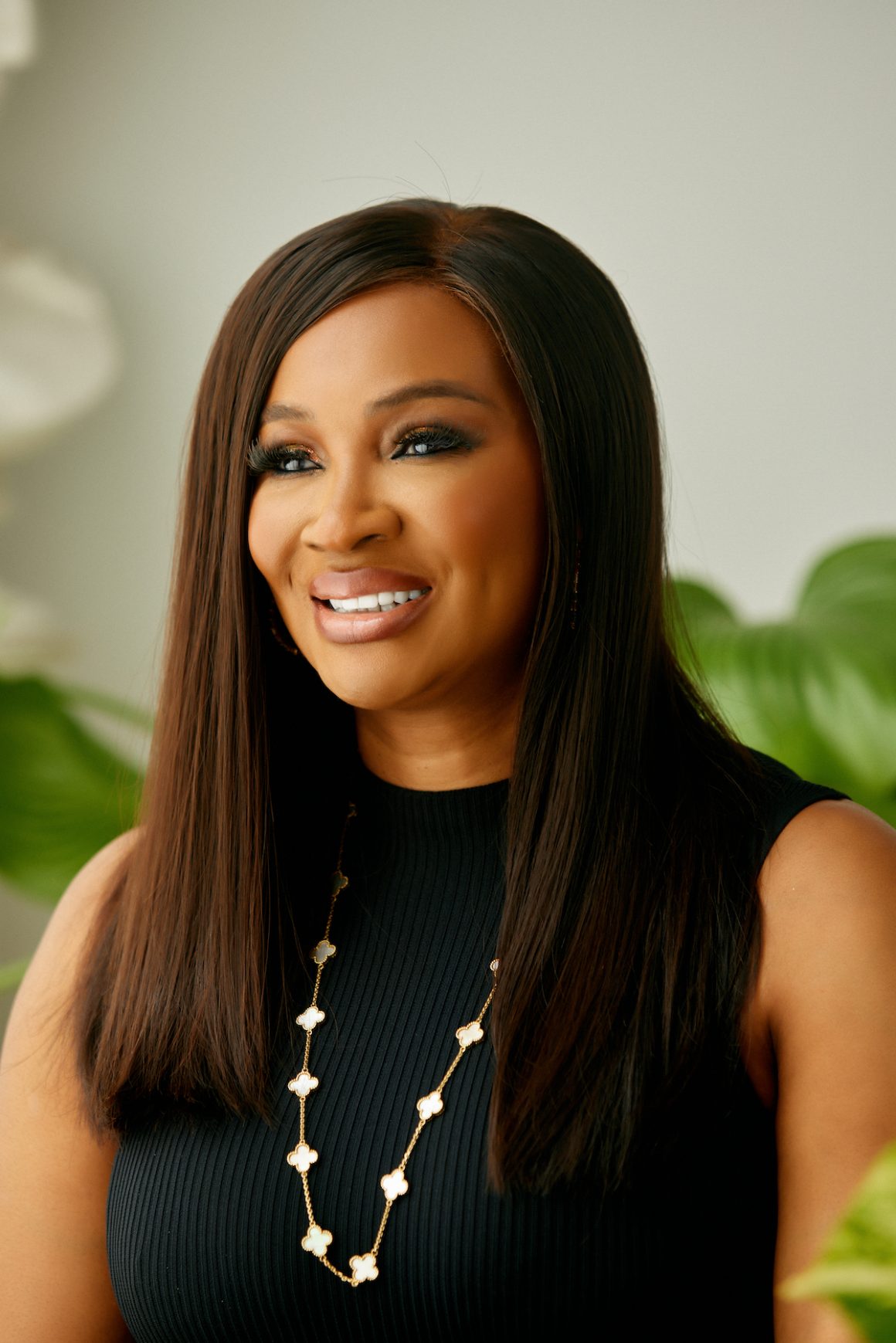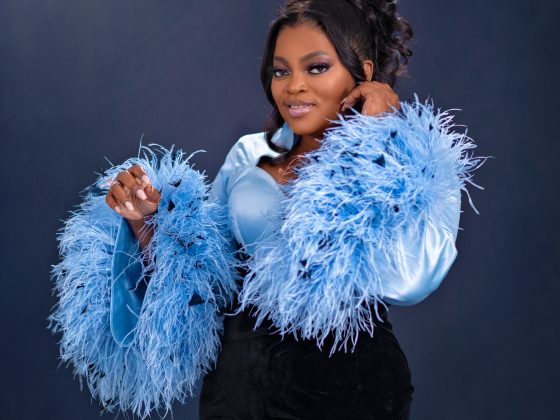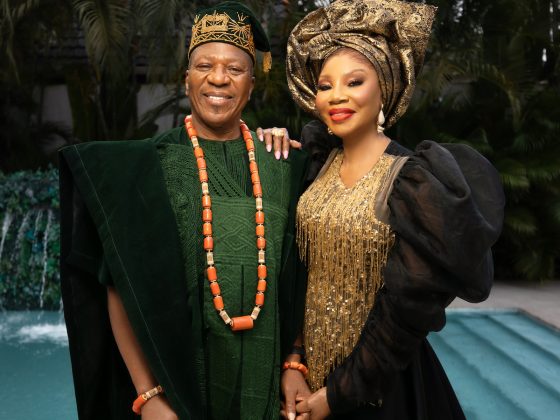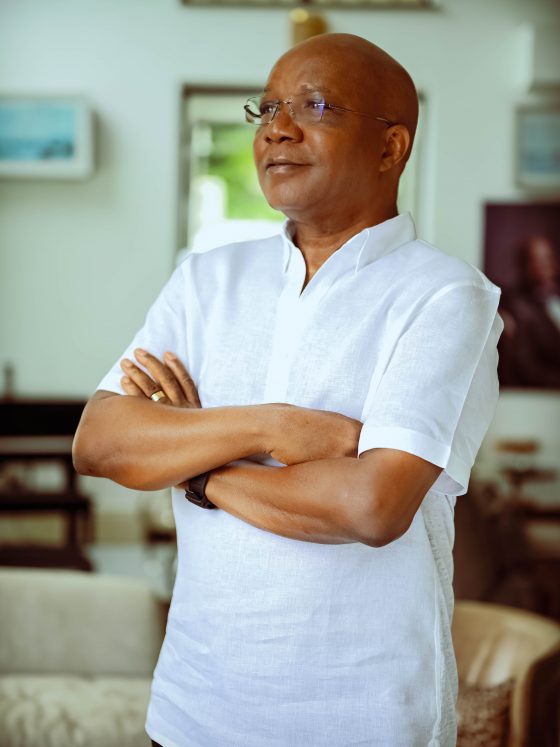A visionary leader and a trailblazer in the African film industry, Chioma Ude has carved a niche for herself as a serial entrepreneur, media executive, and advocate for the African narrative.
Her journey into the limelight began with the founding of the Africa International Film Festival (AFRIFF) in 2010, a venture that has since become the most vibrant film festival experience in Africa. Under her leadership, AFRIFF has not only showcased African talent but also provided a platform for international partnerships, fostering a global appreciation for African cinema.
Beyond AFRIFF, Chioma’s entrepreneurial spirit led her to co-found the Africa Foundation for the Development of Motion Pictures, Arts and Culture, a non-profit dedicated to championing African voices in these fields. Her foray into digital content was marked by the co-founding of Envivo, a multimedia digital content delivery system, and the establishment of Lavida Africa Studios and Entertainment, a production company that recently inked a $50 million deal to produce a range of scripted series and feature films.
She is a firm believer in empowering the youth, particularly young women, as a means to foster a brighter future for Africa. This belief is evident in AFRIFF’s commitment to training over 10,000 young adults in film and television, offering free classes by international experts during the festival. Her business acumen is further demonstrated in her role as Managing Director and CEO of JATA Logistics LTD, where she expanded the company’s scope from logistics to business support services and events management, significantly increasing its net worth.
However, it is her passion, vision, and dedication to improving the African narrative that truly set her apart as a leader and innovator.
In this interview, we delve into the mind of this extraordinary figure, exploring her motivations, challenges, and aspirations as she continues to shape the African film industry and empower its youth.

What is AFRIFF’s origin story? Take us back to the very beginning of what sparked your interest.
I’ve always loved film. Anyone who knows me knows I’m all about films I took a very keen interest when I lived in America, watching Nigerian films. Moving back to Nigeria and starting work, I got the opportunity to meet with Emeka Mba, who was doing a road show for the Nigerian Film and Videos Censors Board in London. I got the contract to RUN the logistics, and in doing that, I met the late Ms. Peace Anyiam-Osagie. We forged a relationship, and she could see how I would help with AMAA when they were just like three years old. I came in and attached a foundation to AMAA and ran the foundation for two years. I did the gala nights depending on the cause; I once did one for sickle cell anaemia. Afterwards, I met Katarina and Alaria. There was a travelling film festival coming to Nigeria, and they needed a Nigerian project manager. I did a fantastic job. The governor and commissioner at the time noticed my work and invited me to do this for Nigeria. In thinking about how it’d work for Nigeria, I decided we are a continent. Africa was given borders by non-Africans, so instead of going for a Nigerian film festival, why not make one for Africa that is inclusive of all of us? I wanted to bring us together with the platform of film. That’s how the journey started.
Tell us a bit about your childhood and what growing up was like. What did you want to be?
I wanted to be everything as a child. I felt I could move mountains. As a child, I thought I could do just about anything I wanted to. I don’t know how to put that into my kids or what my parents did differently that made me feel that way. I think it was just me. I wanted to be a doctor at some point; in fact, I got in. I wanted to do marketing. I wanted to do everything. I had no inhibitions or boundaries; I felt I could do it all. Music was a huge passion, as was film. For music, I didn’t feel I could sing; I felt I could be a backup dancer. I loved it. I got a letter from Davido saying he would like to do a video for a song he wanted to use to celebrate women. I was so excited. I remember some people saying, “So you’re going to go?” I was like, why not? I’m reliving my dreams. Only for me to get there and be frozen. I’m sure I was the worst of them all. In fact, they were very tired of me, but I had relived my dream, and that’s why I love David and Chioma forever for giving me that opportunity. In film, I never saw myself as an actress, but I loved film, so I’m not surprised I’m behind the scenes.
Naturally, I don’t think I should be in front of the camera; I prefer to be at the back. That’s me, I do more magic from behind the scenes. Living in a home with eight kids, of which I’m the fifth, was a lot. I have four brothers and three sisters, and three of the boys were ahead of me, so you can imagine. It was one hell of a house: competition. In fact, I believe I got my grit from being in that house. My elder brother was so smart he was on scholarship. My elder sister was so brilliant; I didn’t stand a chance. I fought for everything I had and quietly. They used to call me the quiet one. I got my grit from just wanting to be seen. It was always about doing something nobody had done. I was that child that went to school and did all sciences. No one had done it before. Even though I knew I didn’t want to do all sciences, I decided I’d do Maths, Add maths, Physics, Chemistry, and Biology. I did it all till WAEC, finished, passed, and cleared all of them. In fact, I had an A1 in Biology, and then I started breathing again because I’d done something nobody had.
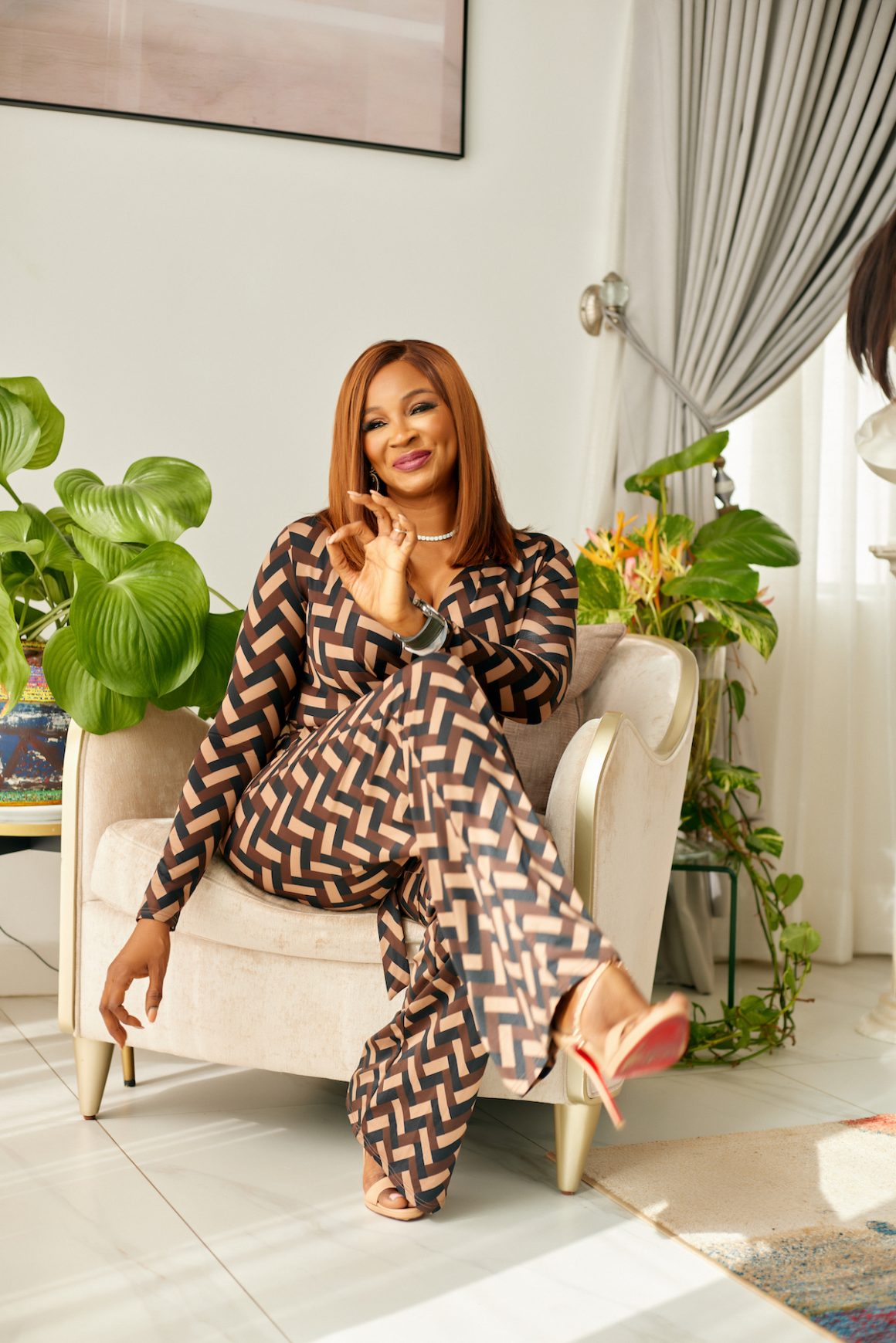

Twelve years into AFRIFF, and what still surprises you?
Nothing surprises me. I’ll say what makes me happy. What makes me happy the most is just the enthusiasm of each demographic. Each demographic finds something wonderful in the festival, which makes me happy. It’s not a case of the young ones. The young, the middle or older ones; it’s everyone. Everyone comes to AFRIFF, finds their niche, learns something from AFRIFF and enjoys the festival. For me, it’s the Community we’ve built over the years.
What are your most significant challenges with AFRIFF, and how did you overcome them?
I would always say funding because many people initially didn’t understand the festival, what it was about, or the value it’ll bring to them and its commercial benefits. People didn’t understand film, so talk of value was worse. Gradually, we stuck it out and had some firms and corporations that stuck with us because they believed in me first and secondly in what I told them the film was about. They got information first-hand as opposed to what they knew. One such person was Herbert. Herbert Wigwe was a firm believer, and then Access Bank was also a bank that drove culture, arts, film, and music. But the first believer was Herbert Wigwe. Before then of course was my darling Oronto who has left us but he was the solid foundation around film and building the festival. The hard thing was getting people to buy into what you were doing, and in getting them to buy into your opinion, the money followed. Raising money was tough. Raising money is no longer tough, but the festival continues to grow in leaps and bounds, and you continue to need more money. So going back, explaining and getting new people is something you must continue to do throughout the year as the festival grows.
Let’s talk about Nollywood for a minute, specifically the last decade. What has made you optimistic, and what still needs to change?
With Nollywood, what has made me more optimistic is the grit of the people. Nigeria has such strong personalities. We believe, and when we believe, we don’t stop. Nollywood was built from the sheer belief and tenacity of the people. No government at the time. So you see them continue to grow, evolve and seek knowledge. Now that the government has stepped in, more corporations and organisations are jumping on it, too, so you can imagine how Nollywood will still grow. The same thing we need to change is still the people. The attitude of the people. A big legend died, and I thought, ” Who did he train? How much of himself did he leave behind? I think Nollywood should start working as a community, transferring knowledge and skills and just being more supportive of each other.
AFRIFF’s theme last year was ‘Indigenous to Global’ and this year’s theme was ‘Indigenous 2.0 to Global’. You’ve mentioned that this theme will be repeated till we are ready. What does this readiness look like, and why is amplifying our indigenous content so important to you?
Because we work in silos, readiness means that you have two groups ready this year, 15 ready next year. For me I need to see 50% of the people making films and training people in a certain kind of way. The whole ecosystem has to grow by 50-70% of what it is now, knowing that you cannot be 100%. That is why, in the industry, you have different types of films and filmmakers. It’s all about getting people, upscaling the individuals to a certain degree of globalisation and pulling back to see them grow. The amplification of our indigenous content is important to me because we need to start earning. You have to earn to sustain an industry. We’re not earning as much as we should, and so upscaling will really help us amplify that.
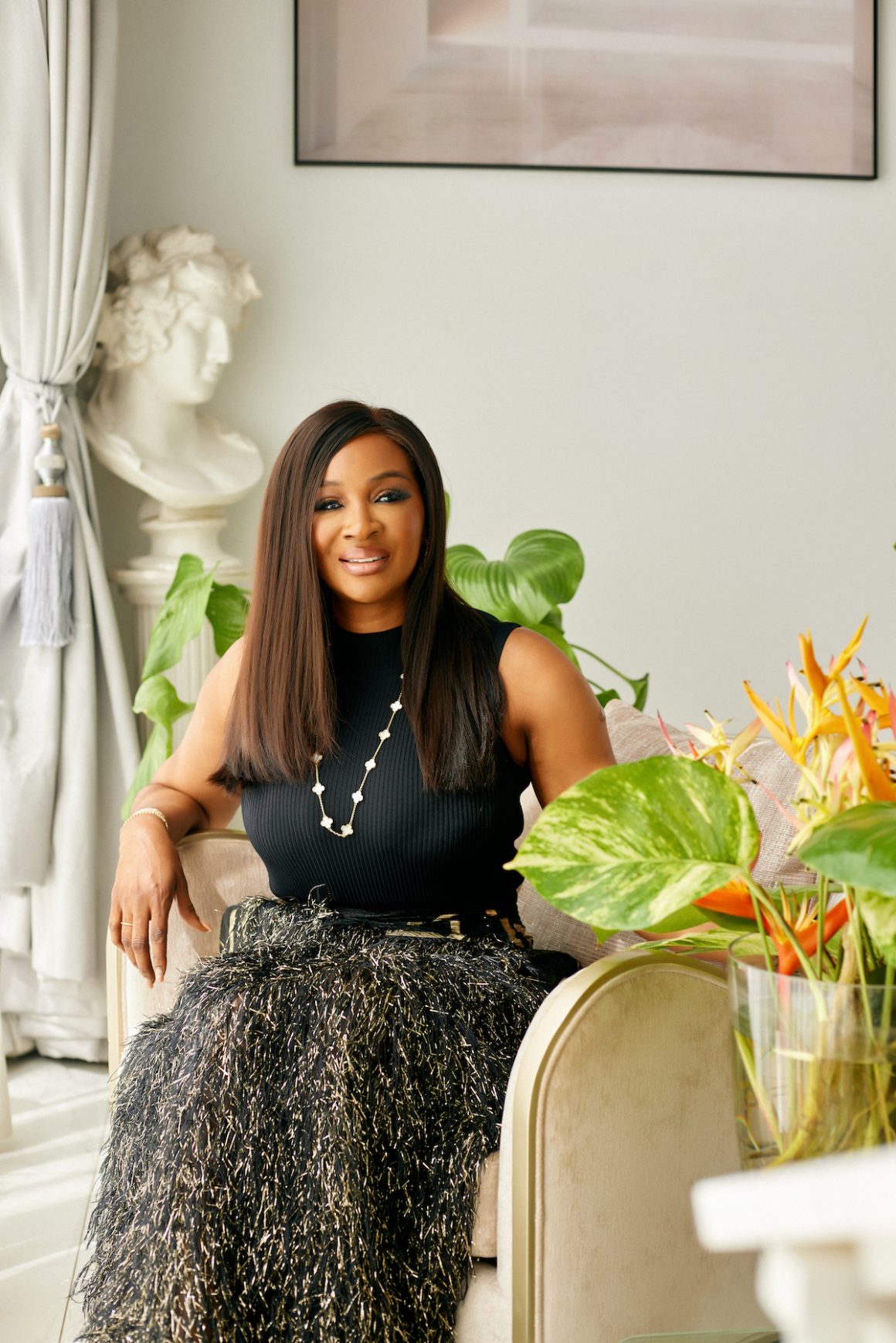
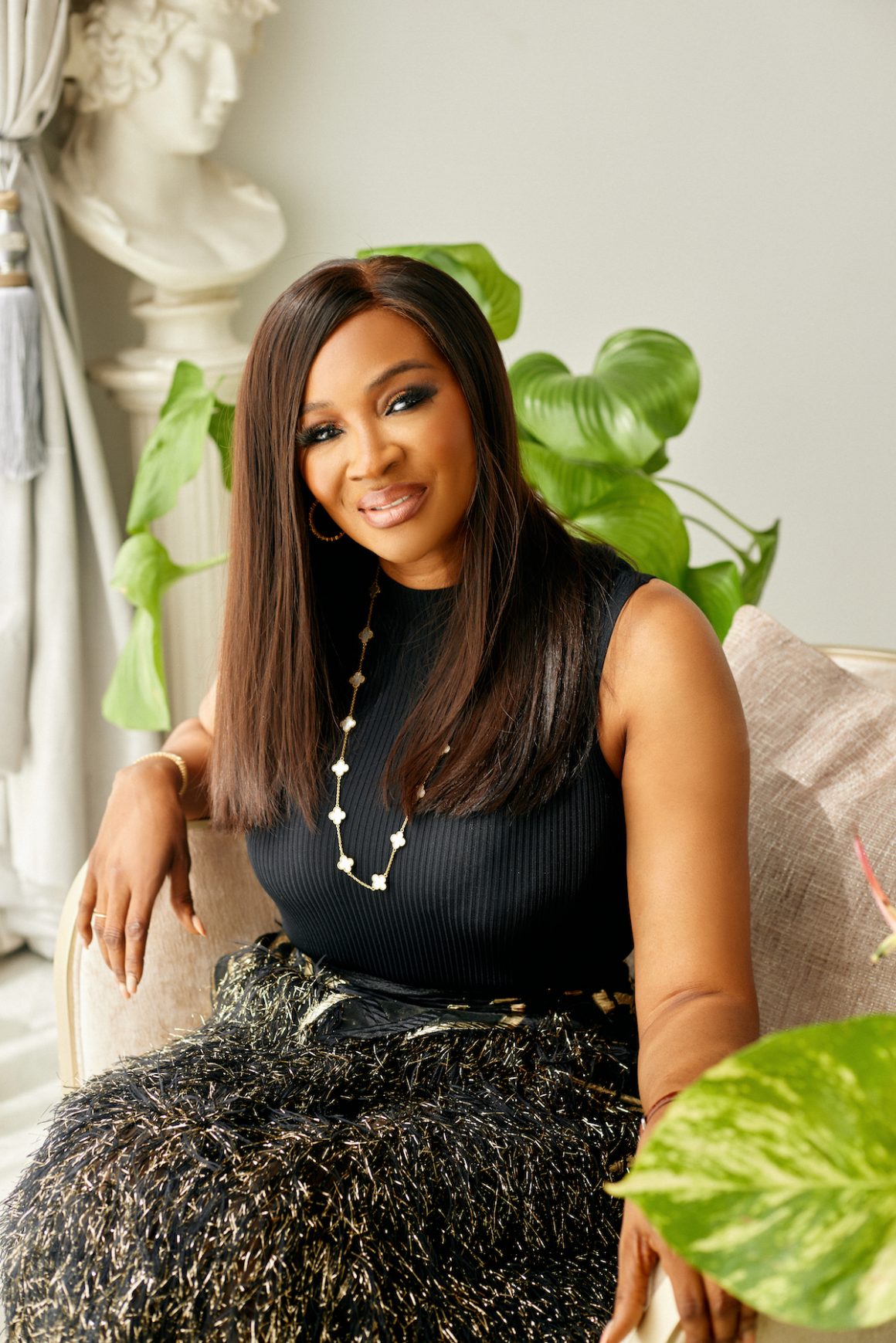
Women are currently occupying high-level executive positions in the Nigerian entertainment industry. From Wangi Mba- Uzoukwu of Amazon Prime to Busola Tejumola of Multichoice, both of whom you have excellent relationships with, how does your mantra, community over competition, apply in those circles?
For me, it comes very easy to me but can be a little deterring. These are two women I’ve worked with and continue to work with in different capacities, at times of their lives and at different positions in the film industry. They are 2 of the wrongest people to talk to about me because they are very easy with collaborating and great with it. Personally, they are two people who have also helped me grow. They inspire me to keep pushing ‘Community over Competition’ because I understand what helping me did to my life.
Before the “creative economy” became the buzzword it is today, platforms like yours have pushed tirelessly for development in the entertainment industry. What has sustained it for this long?
My tenacity, my grit and the excitement of the people. The film festival was sold to the industry as theirs. If you know something is yours, you will sustain it. In knowing it’s theirs, every year, you see the growth, the excitement of participation. What sustains it is the community it grows and continues to morph into.
How has Lagos state and the Nigerian government supported the film industry, and what more can they do?
It’s taken a while for them to understand the industry, but they are catching up and are still growing because it is not their core competence. But the good thing is the appetite they have for it now. Once you feed the right thing into their appetite, they continue to grow. So far, Lagos State has been training people, and that’s great upscaling. I hear they’ve given people money. I think they’re doing what they are supposed to, but people continue to work in silence, so you don’t get the complete information. I don’t know if we need the complete information; you hope it’s going to the right people.
What more needs to happen for Nollywood’s prospects to shine the way Nigerian music has taken the world by storm? From the Grammys to the VMAs and beyond, how can Nollywood replicate that?
Nollywood is not looking to replicate anything. Nollywood is looking to be who Nollywood is. The music industry also grew tremendously because of Nollywood, by the way. We infiltrated homes before they came. All the slang they know and hear in music was first held in films. Music is very different from film because it travels faster and has more mediums of movement, so it’ll go further into homes, while film is a bit more niche. I may not like thrillers, but I like horror, so it depends on your likes. We just need to continue making great movies. Movies across the world have their time and season. There are some movies that have come to stay permanently, like ‘Sound of Music’. We hope one day we create our own ‘Sound of Music’ that has come to stay permanently, but it comes and goes with movies. What remains is the industry. How good is it? What is it doing? How is it impacting its society? Are they the pillars of politics, the new leaders, the makers of change; what do our movies do for the continent and the rest of the world? They are two very different things. I don’t know why we keep comparing them all the time. I guess it’s a lack of knowledge.
A lot of people build great institutions that fade away after they are gone. What are you putting in place to ensure AFRIFF lives on after you?
AFRIFF is a film festival that has been built around a community. It will continue to grow and be there for the Community. One thing that may happen to AFRIFF is that a point if I’m not getting the proper support I should be getting, I’m going to sell it to a foreigner. We would co-own it, and that will sustain it forever. If we don’t see people here who will make it stay, you have to sell it. That’s the sad part. I hope not, but for its sustainability, something has to give. We will keep pushing to ensure people get the value and understand what it is so we don’t have to sell it and have it go elsewhere.
The youth are the future, but what characteristics will they need to embody to propel the industry exponentially?
The good thing about film is you can be a filmmaker till you’re 100. The impact of the Gen-Z generation has to come from them. If they don’t have the grit, strong will, and patience, they’ll fall away. At the end of the day, film is truly really really about passion. The people who come in for other reasons cannot stay. I’m not worried about who stays or not; your passion will let you stay. There’ve been thousands of film festivals. They come and go, but the ones that have been driven by people who want change are there; you’ll see them.
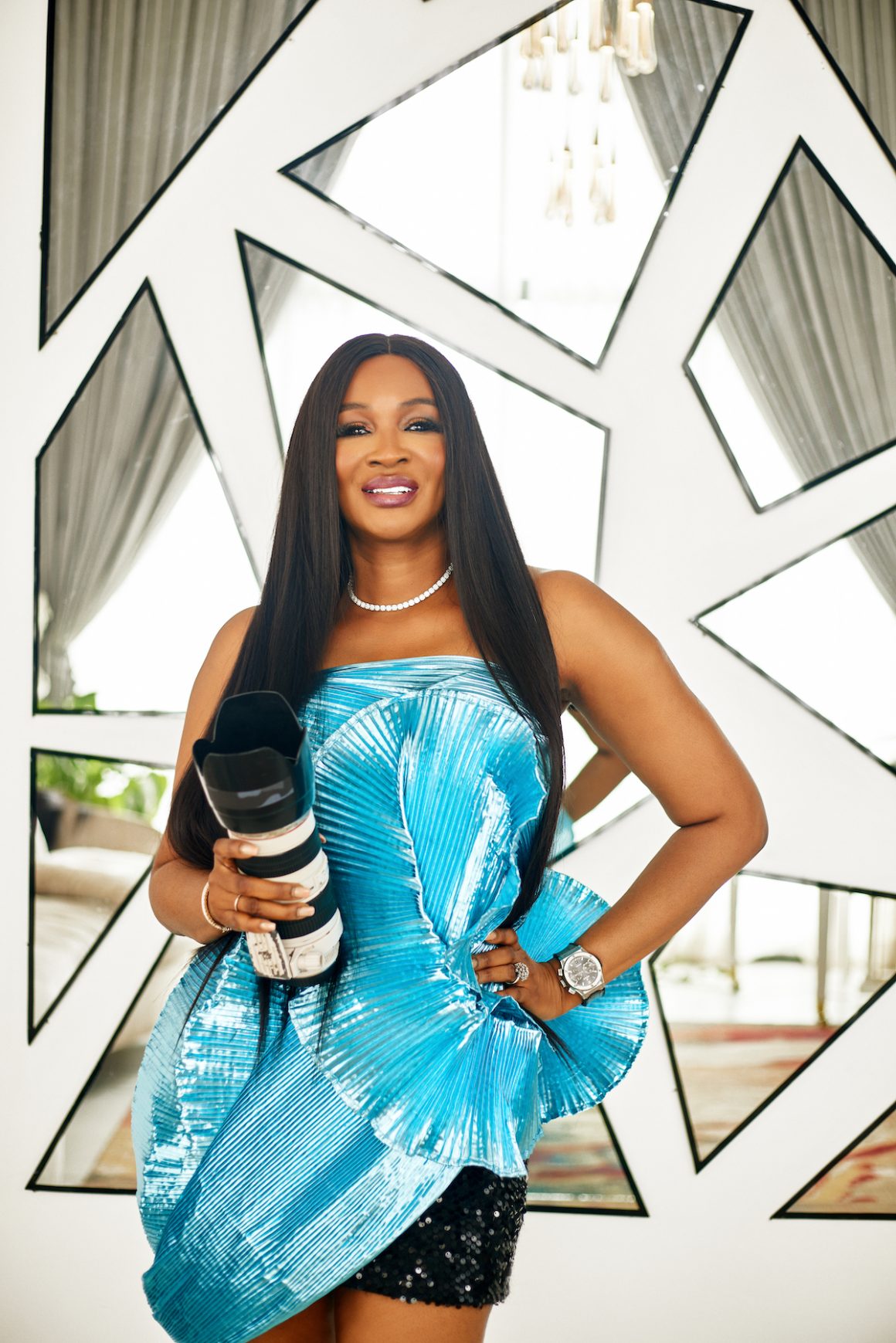
As a mother of 5, what is the most significant lesson motherhood taught you?
Mehn (laughs) Just be patient with them. Patience, but my cloak gets longer by the minute.
How do you relax?
I watch TV a lot. When I do go out, I go with a friend or 2. I don’t like crowds. I really do relax by watching TV.
How would you describe your style?
Clean
How do you want to be remembered?
As a lady who had a lot of empathy

